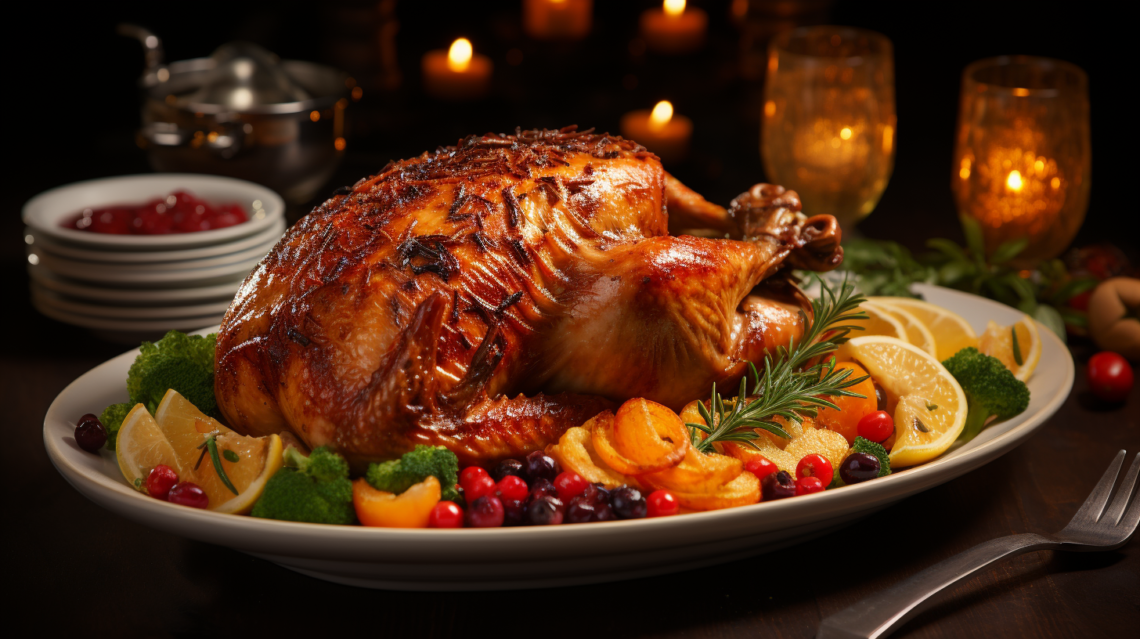
Healthy Eating During the Holiday Season
The holiday season in Canada brings with it a unique culinary tradition that is both delightful and challenging. As family and friends gather to celebrate, tables are often laden with rich, indulgent foods that are deeply embedded in our cultural festivities. From succulent roasted meats to an array of pies and pastries, the holiday season seems to give a nod to indulgence, making it a particularly difficult time for those who strive to maintain a healthy diet. This juxtaposition of celebratory feasting and healthful eating creates a dilemma that requires careful navigation.
Striking a balance between indulging in festive treats and maintaining a nutritious diet is at the heart of healthy holiday eating. This doesn’t entail a complete denial of holiday favourites but rather embraces the concept of moderation and mindful eating. Enjoying a slice of pie or a serving of stuffing is perfectly fine, but the key is to do so in moderation. By consciously savoring each bite and controlling portion sizes, one can partake in the festive joy without overindulging. Moreover, filling your plate first with vegetables and lean proteins can help control the temptation to overindulge in more calorific dishes. Incorporating nutrient-rich foods into traditional holiday meals can significantly elevate their health quotient without sacrificing flavour. Vegetables, fruits, whole grains, and lean proteins can be the cornerstone of your festive meals, and with a bit of culinary creativity, these ingredients can be transformed into delicious and healthy dishes. For instance, roasting vegetables with a light coating of olive oil and a sprinkle of herbs can create a side dish that is both nutritious and satisfying. Substituting whole-grain bread in stuffing recipes or using yogurt instead of cream in some dessert recipes are small changes that can have a substantial impact on the nutritional value of holiday meals.
Another crucial aspect of healthy holiday eating is being mindful of sugar intake. The holidays are often synonymous with sugary treats, and while they are undoubtedly a part of the festive experience, it’s essential to approach them with caution. High sugar consumption is associated with a range of health issues, including weight gain and dental problems. Moderation is key here as well, and seeking out healthier alternatives, such as fruit-based desserts, can be a beneficial strategy. A dessert of baked apples with a hint of cinnamon and honey, for instance, can be a delightful way to end a meal on a sweet note while still being mindful of health.
Alcohol consumption is another element that often increases during the holiday season. While enjoying a glass of wine or a festive cocktail can be part of the celebrations, it’s important to do so responsibly. Alcoholic beverages are not only high in calories but can also lower inhibitions, leading to overeating. Choosing lighter options, such as wine spritzers or light beer, and interspersing alcoholic drinks with water or non-alcoholic beverages, can help in maintaining a balance.
Beyond diet, staying physically active is an essential component of a healthy holiday season. Regular exercise not only helps in managing the additional caloric intake but is also beneficial for overall health and well-being. Incorporating physical activities into the holiday routine, such as family walks, ice skating, or even dancing to festive music at home, can be enjoyable ways to stay active and engaged during this season.
Finally, the social aspect of holiday eating can significantly influence our food choices and the amount we consume. Social settings often encourage overeating, sometimes due to perceived social pressures or simply because of the abundance of food available. Being aware of this tendency and setting personal boundaries can be crucial. Opting for smaller portions, or politely declining second helpings, are strategies that can help maintain control over your diet in social settings.
While the holiday season is a time for joy, celebration, and togetherness, with food playing a central role in these festivities, this does not mean that one’s health goals need to be sidelined. By practicing moderation, incorporating nutritious foods, being mindful of sugar and alcohol intake, staying active, and navigating social eating with awareness, it’s possible to enjoy the festive season in a healthful and joyful manner. The holiday season thus becomes not only a celebration of traditions and togetherness but also an opportunity to embrace and celebrate a healthy lifestyle.

